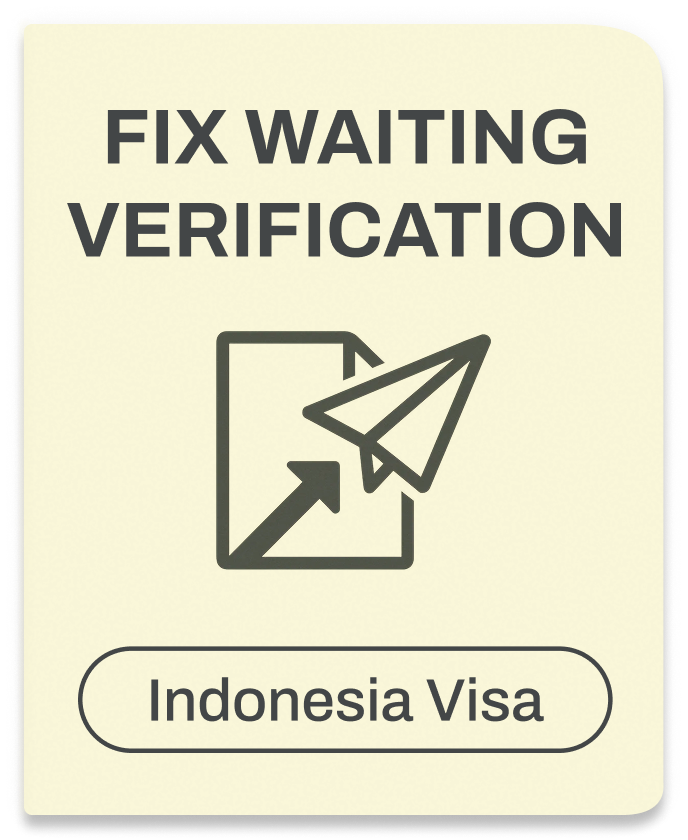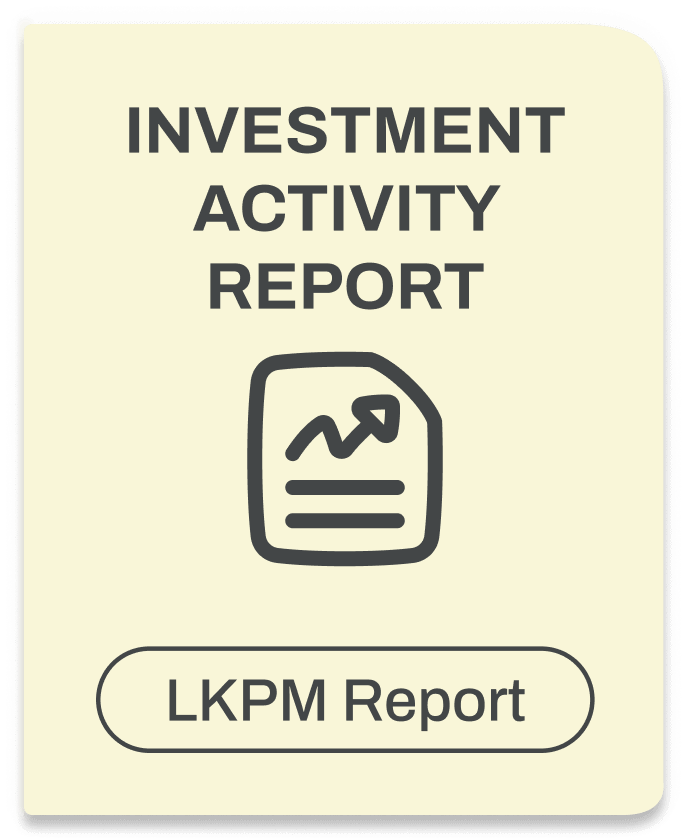Understanding NPWP for Foreigners: Key to Tax Compliance in Indonesia

Understanding Indonesia’s Nomor Pokok Wajib Pajak (NPWP) isn’t only important, but also essential. If you live, work, or run a business in Indonesia, your NPWP ensures you meet tax obligations and stay on the right side of the law. Think of it as your tax ID that proves you’re doing things by the book.
But it’s not just about taxes. You’ll need your NPWP for various official purposes, such as opening a bank account, applying for a business license, or purchasing property. Without it, those doors stay closed.
If you live or work in Indonesia, staying informed about these changes is essential. The transition is underway, so getting ahead will save you time, stress, and penalties.
What is an NPWP?
An NPWP stands for Nomor Pokok Wajib Pajak, which translates to Taxpayer Identification Number in English. It is a unique number issued by the Indonesian tax office for tax purposes to individuals and businesses. This number is essential for anyone who earns income, owns a business, or is involved in taxable activities in Indonesia.
The NPWP allows the government to track taxpayers and ensure they comply with tax regulations. It is also used for filing taxes, making payments, and meeting other tax obligations in Indonesia. With an NPWP, individuals and companies can conduct business, open bank accounts, and apply for government services.
For foreigners living or working in Indonesia, obtaining an NPWP is often necessary if you earn income, own property, or run a business. It helps ensure you meet your tax responsibilities, such as income tax and other related duties. The NPWP is for Indonesians and anyone with tax obligations in the country.
Eligibility for Foreigners to Get an NPWP
Foreigners can apply for an NPWP (National Taxpayer Identification Number) in Indonesia if they meet specific conditions. The requirements vary depending on the individual’s residency status and income sources.
Foreign Individuals
Foreign individuals who reside in Indonesia for more than 183 days within 12 months are required to obtain an NPWP. This includes expatriates, international students, retirees, and individuals on work permits.
In addition to residency, foreigners who earn income from Indonesian sources, whether through employment, business, or investment, are required to register for an NPWP. To apply for an NPWP, a valid stay permit, such as a KITAS (Temporary Stay Permit) or KITAP (Permanent Stay Permit), is necessary.
Income tax rates for residents and non-residents in Indonesia:
| Taxable Income Bracket (IDR) | Total Tax on Income Below Bracket (IDR) | Tax Rate on Income in Bracket (%) |
| IDR 1 to IDR 60,000,000 | IDR 0 | 5 |
| IDR 60,000,001 to IDR 250,000,000 | IDR 3,000,000 | 15 |
| IDR 250,000,001 to IDR 500,000,000 | IDR 31,500,000 | 25 |
| IDR 500,000,001 to IDR 5,000,000,000 | IDR 94,000,000 | 30 |
| IDR 5,000,000,001 onwards | IDR 1,444,000,000 | 35 |
Foreign Business Owners
Foreign business owners in Indonesia are also required to obtain an NPWP. This applies to sole proprietors and directors of foreign-owned companies. If the business generates taxable income in Indonesia, the company must register for an NPWP for tax reporting and compliance purposes.
Tax Rates for Business:
| Tax Type | Rate | Details |
| Corporate Income Tax | 22% | This applies to all resident and foreign corporations in Indonesia. Public companies with a≥40% listing receive a 19% rate. Small companies (with an annual turnover of ≤ IDR 50 billion) receive a 50% discount on taxable income up to IDR 4.8 billion. |
| Value-Added Tax (VAT) | 11% | Charged on goods and services within Indonesia. |
| Property Tax | Up to 0.3% | The annual land and buildings tax is based on the market value, as determined by regional governments. |
Step-by-Step Process for Foreigners to Create an Individual NPWP in Indonesia
If you’re a foreigner living or working in Indonesia, you’re required to obtain a Nomor Pokok Wajib Pajak (NPWP) or tax identification number to comply with Indonesian tax regulations. Here’s a simple guide to help you through the process.
Step 1: Visit the Local Tax Office (Kantor Pelayanan Pajak – KPP)
The first step is to visit the nearest Kantor Pelayanan Pajak (KPP) or Tax Office. There are several KPPs located throughout Indonesia, and the one you should see depends on your location. Your nearest KPP is on the official Directorate General of Taxes (DGT) website.
Step 2: Complete the Application Form
You must fill out an NPWP application form at the Tax Office. The form is called Formulir 1770 for individuals. It is available at the KPP office and can also be downloaded from the DGT website.
Ensure you have all the required documents before completing the form to avoid delays. These documents include:
- A copy of your passport (as proof of identity)
- A copy of your KITAS or KITAP (Temporary or Permanent Stay Permit)
- Evidence of your Indonesian address (such as a utility bill or lease agreement)
- Employer’s tax-related documents (if employed)
Step 3: Submit Your Documents
Once you’ve completed the form and gathered your documents, submit everything to the Tax Office. The staff at the office will verify your information. They may request additional documents or clarification, so it’s essential to have everything prepared.
Step 4: Wait for Verification and Processing
After you submit your application, the Tax Office will process your request. This typically takes 1-2 weeks. During this time, they will verify your identity and check the documents you’ve provided.
If there are no issues, you’ll receive your NPWP. Sometimes, they may request further clarification or documentation, so be prepared for additional steps if necessary.
Step 5: Receive Your NPWP
Once the process is complete, you will receive your NPWP card or certificate. This document will have your unique tax identification number, which you will need to use for any tax-related matters in Indonesia.
Step-by-Step Guide to Tax Obligations for Foreign Businesses in Indonesia
A foreigner owning a business in Indonesia must comply with Indonesia’s tax policy to ensure proper legal and financial operations. Here’s an easy-to-follow guide on how foreign business owners can meet Indonesia’s tax obligations:
Register for an NPWP for the Business
Like individuals, businesses in Indonesia need a Nomor Pokok Wajib Pajak (NPWP) or tax identification number. As a foreign business owner, you must:
- Obtain a corporate NPWP: You’ll need to register your company with the Directorate General of Taxes (DGT) to get a corporate NPWP. This will be separate from your personal NPWP, but it’s required for all tax filings and legal business operations.
- Required Documents:
- Company’s legal documents: Business registration, Articles of Association, and other company licenses.
- Director’s passport: A valid passport or KITAS/KITAP (temporary/permanent stay permit) if you’re a foreign national.
- Tax-related documents: Any existing tax documents the company has, if applicable.
Choose the Right Taxpayer Type
Foreign businesses must decide which tax classification they fall under. These include:
- Permanent Establishment (PE): If a foreign business has a physical presence in Indonesia, such as a branch or representative office, it is considered a Permanent Establishment and is required to pay corporate income tax (CIT) on income sourced from Indonesia.
- Representative Office: If a foreign business operates in Indonesia solely for market research or business coordination, its tax obligations may differ, and the office may not be subject to full tax payments.
- Local Company (PT PMA): A foreigner can establish a Penanaman Modal Asing (PMA) or a Foreign Direct Investment company. This company will be subject to full taxation like an Indonesian company.
Register for VAT (Value Added Tax)
If your business sells goods or provides services in Indonesia, it is likely subject to Value Added Tax (VAT). Businesses with an annual turnover exceeding a certain threshold (currently IDR 4.8 billion) must:
- Register for VAT: You must charge VAT on your sales and remit it to the tax authority.
- Issue Tax Invoices: Ensure your invoices accurately display the correct VAT amount and comply with Indonesian tax regulations.
Comply with Corporate Income Tax (CIT)
Foreign businesses, including those owned by foreign entities, are required to comply with Corporate Income Tax (CIT) in Indonesia. The tax rate for most businesses is 22% on taxable income, though smaller businesses or new companies may qualify for tax incentives.
- Filing Requirements: Corporate income tax returns must be filed annually with the Department of Taxation and Government Revenue (DGT).
- Taxable Income: This includes income derived from activities carried out in Indonesia. For Permanent Establishments, foreign companies are required to report income sourced from Indonesia.
Payroll Taxes for Employees
If you employ Indonesian residents, you will need to comply with payroll taxes:
- Withholding Tax (PPh 21): This tax must be withheld from your employees’ salaries. The rates vary depending on the employee’s income level.
- Employer’s Contributions: You must also contribute to your employees’ social security programs, specifically BPJS Kesehatan and BPJS Ketenagakerjaan.
Submit Monthly and Annual Tax Filings
Foreign businesses must file both monthly and annual tax returns:
- Monthly Tax Returns: VAT returns, withholding tax (PPh 21), and other relevant taxes. These must be submitted by the 20th of the following month.
- Annual Tax Returns: Corporate tax returns must be filed by the end of the 4th month after the fiscal year ends.
You can submit your tax returns online through the e-filing system on the DGT website.
Understand Transfer Pricing Rules
Suppose your foreign business transacts with related parties (e.g., subsidiaries, affiliates). In that case, Indonesia has transfer pricing regulations to ensure that transactions between associated entities are priced moderately and in line with market conditions.
- Documentation: You must maintain documentation of all intercompany transactions to demonstrate that they are conducted at arms-length prices.
Tax Incentives and Exemptions for Foreign Businesses
Indonesia offers various tax incentives for foreign businesses, including:
- Tax holidays: Tax holidays or reduced tax rates may apply to companies in specific industries, such as manufacturing or renewable energy.
- Investment allowances: Foreign investors may also qualify for tax deductions related to capital investments.
Indonesia’s Double Taxation Agreement (DTA)
Indonesia has signed Double Taxation Agreements (DTAs) with several countries to prevent individuals and companies from being taxed twice on the same income. These agreements provide tax relief to foreign taxpayers, including expatriates and international businesses, who would otherwise be subject to double taxation on income earned in Indonesia and their home country.
DTAs clarify which country has the right to tax specific types of income (salaries, dividends, interest, royalties, and business profits) and provide mechanisms to reduce or eliminate double taxation.
Key Features of Indonesia’s DTA
Allocation of Taxing Rights
The DTA allocates taxing rights to either Indonesia or the taxpayer’s country of residence, typically based on the source of the income. If both countries have taxing rights, the country of residence often provides a credit for taxes paid to the other country.
Example: If a foreign national earns income in Indonesia, they may be subject to taxation by Indonesia but can claim a credit for taxes paid in Indonesia when filing taxes in their home country.
Types of Income Covered by the DTA
The DTA covers various types of income, including:
- Employment Income: Taxed in the country of residence unless the employment is exercised in Indonesia.
- Dividends: These are taxed in both countries, but Indonesia may reduce the tax rate on dividends.
- Interest: Typically taxed at a reduced rate in Indonesia.
- Royalties: Similar to interest, royalties may be taxed at a reduced rate in Indonesia.
- Business Profits: Taxed where the business activities are carried out, with special rules for Permanent Establishments (PE).
Relief from Double Taxation
The DTA offers two standard methods for relieving double taxation:
- Exemption Method: The country of residence exempts foreign income from taxation.
- Credit Method: The country of residence allows taxpayers to offset foreign taxes paid against their tax liability in their home country.
Tax Reduction and Relief Mechanisms Under Indonesia’s DTA
The Double Tax Agreement (DTA) between Indonesia and other countries provides tax reductions or exemptions to prevent double taxation. The reductions depend on the specific terms of each agreement. Here are the most common relief mechanisms:
Reduced Withholding Tax Rates on Various Income Types
Indonesia’s DTAs often reduce the standard withholding tax rates on the following income types:
- Dividends: The domestic withholding tax rate is 20%, but under a Double Tax Agreement (DTA), it can be reduced to 5-15%.
- Interest: The standard withholding tax is 20%, but Double Tax Agreements (DTAs) typically reduce this rate to 10-15%.
- Royalties: The domestic rate is 20%, but double tax agreements (DTAs) may reduce it to 10-15%.
- Technical Service Fees: The withholding tax is typically 20%, but it can be reduced to 10% under the Double Tax Agreement (DTA).
Permanent Establishment (PE) Rules
The DTA defines what constitutes a Permanent Establishment (PE) in Indonesia. If a foreign company has a permanent establishment (PE) in Indonesia, it will be taxed on profits attributable to that PE. However, passive income, such as dividends and interest, is taxed at a lower rate.
Relief for Foreign Tax Paid
- Tax Credit: If taxes are paid in Indonesia, the taxpayer’s home country may allow them to offset Indonesian taxes against their tax liability, thereby avoiding double taxation.
- Tax Exemption: In some cases, the home country may entirely exempt foreign-source income (such as income from Indonesia) from taxation.
Income from Employment
Employment income earned in Indonesia by a foreign national is typically taxed in their country of residence. However, the DTA can provide exemptions or reductions for income earned in Indonesia if the individual stays in the country for less than 183 days.
Expatriates working in Indonesia may be exempt from paying tax on their Indonesian income in their home country or may be eligible for a tax credit for taxes paid in Indonesia.
Steps to Claim DTA Benefits
- Check if Your Country Has a DTA with Indonesia:
Verify if your home country has signed a Double Tax Agreement (DTA) with Indonesia. If it has, you can benefit from the agreement’s provisions.
Countries under Indonesia’s DTA tax treaty:
- Algeria
- Armenia
- Australia
- Austria
- Bangladesh
- Belarus
- Belgium
- Brunei
- Bulgaria
- Cambodia*
- Canada
- China
- Croatia
- Czech Republic
- Denmark
- Egypt
- Finland
- France
- Germany
- Hong Kong
- Hungary
- India
- Iran
- Italy
- Japan
- Jordan
- Korea (North)
- Korea (South)
- Kuwait
- Laos
- Luxembourg
- Malaysia
- Mexico
- Mongolia
- Morocco
- Netherlands
- New Zealand
- Nigeria
- Norway
- Pakistan
- Papua New Guinea
- Philippines
- Poland
- Portugal
- Qatar
- Romania
- Russia
- Seychelles
- Serbia
- Singapore
- Slovakia
- South Africa
- Spain
- Sri Lanka
- Sudan
- Suriname
- Sweden
- Switzerland
- Syria
- Taiwan
- Tajikistan
- Thailand
- Tunisia
- Turkey
- Ukraine
- United Arab Emirates
- United Kingdom
- United States
- Uzbekistan
- Venezuela
- Vietnam
- Zimbabwe
- File the Necessary Tax Forms:
Expatriates are required to file an annual tax return in Indonesia through e-filing. When doing so, they should report their income and claim DTA benefits. Additional documentation, such as a certificate of tax residency from the home country, may be required. - Consult a Tax Professional:
Since DTAs can be complex, it is recommended to consult with a tax professional who can guide you through the specifics of the agreement, ensure compliance with both Indonesian and home country tax laws, and help claim reductions or exemptions.
Ready to Apply or Extend Your Visa?
Let our visa specialists handle your application.



















